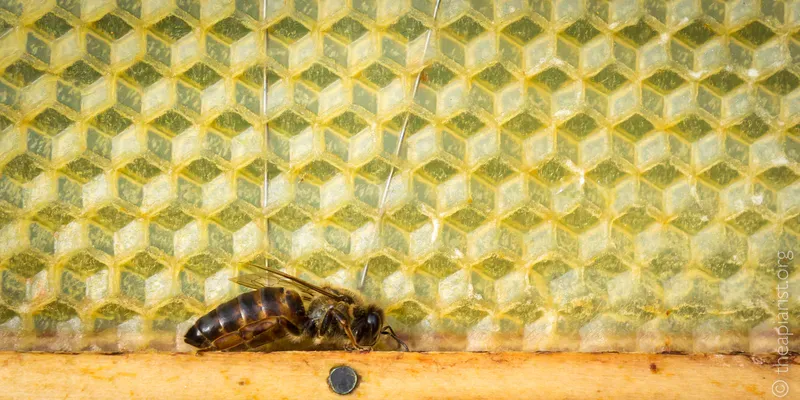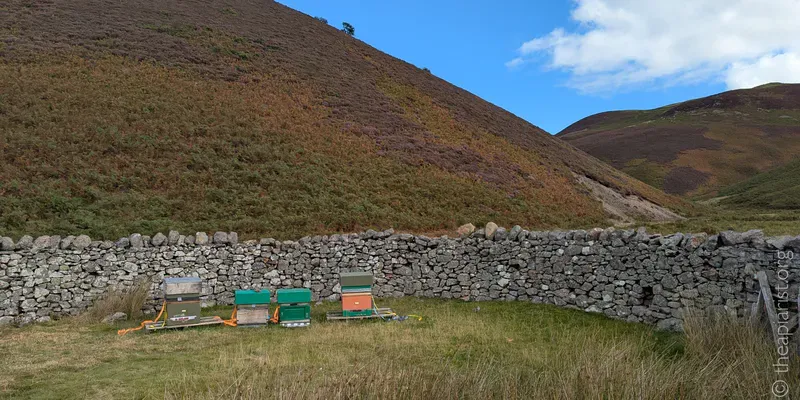Occam's Razor and beekeeping

There's a lot of variation in beekeeping. Things change from week to week, and month to month. This season was different from last, and next season will be different again {{1}}.
This variation is just one of the things that makes beekeeping so interesting, and so challenging.
But these seasonal changes aren't the only things that vary.
Beekeeping attracts all sorts of people; brain surgeons, tree-huggers, lorry drivers, accountants, rocket scientists, environmentalists, homemakers and, I dare say, homebreakers.
But within that broad swathe of society, it seems to me that there are two basic types of beekeepers:
- Those who don't understand, or don't care, what's happening inside the hive, but just want some honey at the end of the year. If things don't work out, they don't try to determine what went wrong. Instead, they simply buy another queen (or nuc) and hope for better 'luck' the following year. They keep bees, and they like honey, but that's it.
- Those who want to understand what the colony is doing. If things go well, they want to repeat the success in the future. Conversely, if things go badly they try to understand why, and avoid the situation happening again. Ideally, if things start to go 'pear shaped', and they spot the symptoms, they intervene in the hope of averting disaster {{2}}.
Blurred boundaries
Inevitably there's some blurring of the boundaries between these groups, both in the level of interest/understanding, and its timing.
Some tyros start as near-fanatics, suffer a couple of setbacks, and rapidly join the first group (or give up). Others start the season enthusiastically, determined to keep on top of things, only to be distracted by family holidays, golf, or a thousand and one other things (aka 'life'), and end the season without a clue what happened in the hive.
But it also works the other way; some start knowing next to nothing (or inherit bees 'accidentally'), but get captivated by bees and beekeeping, and develop an insatiable thirst for understanding. They never stop learning.
My guess is that most readers of The Apiarist fall into the 'like to understand' group. I know I do, though it's not unusual for me to realise “I don't have Scooby”.

For example, heather honey … on the West coast it was the only honey I produced (and most years generated too little to even dampen the extractor 😞), where the 'challenging' conditions made colony preparation for the late summer crop problematic {{3}}.
This year — for the first time — I've taken hives to the heather in the Scottish Borders. Some did well, some did poorly. I'd really like to understand why near-identical colonies performed so differently, so I can get more to do well next year.
Why does any of this matter?
In some ways, it doesn't (other than carrying those echoingly empty supers back from the hill).
You can keep bees without understanding why the colony is doing whatever it's doing. You can even be successful — measured however you want; honey production, wax, pollination, etc. — without much understanding of bees.
At least, you can some of the time.
In a good year, beekeeping is easy.
A few carefully timed inspections, a bit of swarm control, everything goes swimmingly.
Heavy supers, mated queens, happy beekeeper.
But how often does that happen?
I reckon I've had three 'easy' beekeeping seasons over the last 15 years. Seasons where everything went right. Seasons in which any fool (including this fool) could succeed.
However, most years bring challenges; adverse weather, pests and pathogens, accidents, or often a complex mix of these and other events.
Deciphering why the colony isn't doing as well as it should, or doing something you think it shouldn't, involves good observation, a little detective work, and some basic knowledge of honey bee biology.
It's not rocket science (so rocket scientist beekeepers don't have an advantage), but it isn't always easy. Whether you consciously apply it or not, judicious use of Occam's Razor — the law of parsimony — makes understanding your bees a little easier.